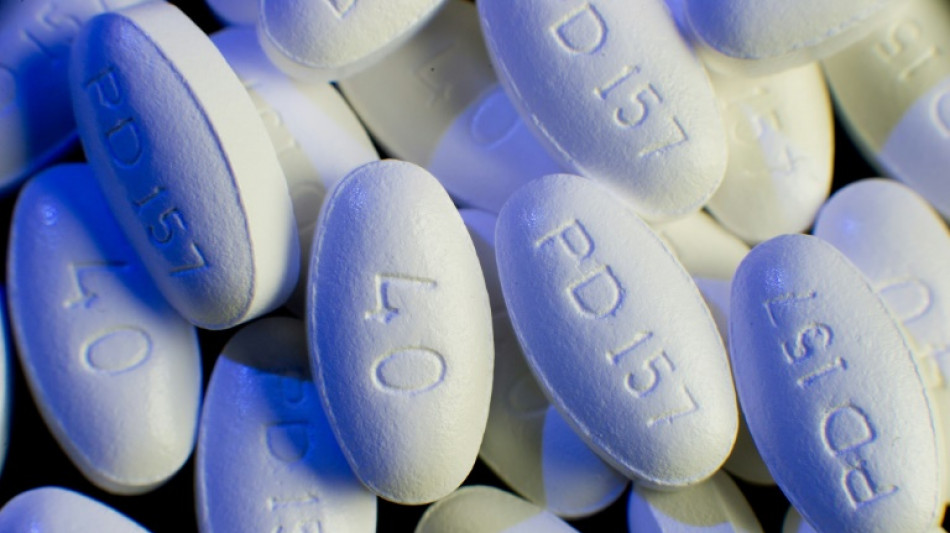
-
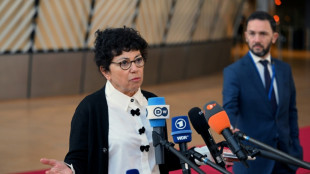 EU in last-ditch push to seal climate targets before COP30
EU in last-ditch push to seal climate targets before COP30
-
Finnish ex-PM Marin says her female cabinet faced torrent of sexism

-
 Sudan army-backed council to meet on US truce proposal: govt source
Sudan army-backed council to meet on US truce proposal: govt source
-
BP profit surges despite lower oil prices

-
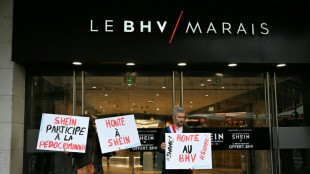 Shein vows to cooperate with France in childlike sex doll probe
Shein vows to cooperate with France in childlike sex doll probe
-
National hero proposal for Indonesia's Suharto sparks backlash
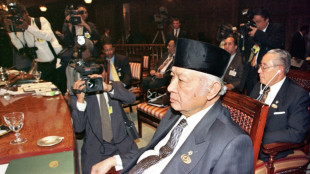
-
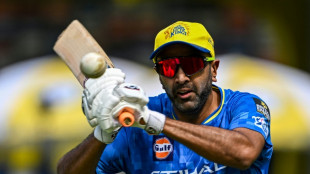 Indian great Ashwin out of Australia's BBL after knee surgery
Indian great Ashwin out of Australia's BBL after knee surgery
-
Indian Sikh pilgrims enter Pakistan, first major crossing since May conflict: AFP
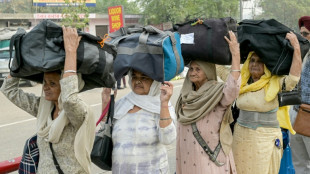
-
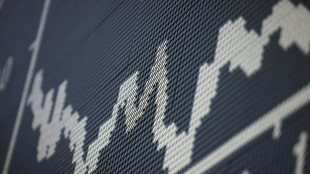 Asian markets slip as traders eye tech rally, US rate outlook
Asian markets slip as traders eye tech rally, US rate outlook
-
Nintendo hikes Switch 2 annual unit sales target
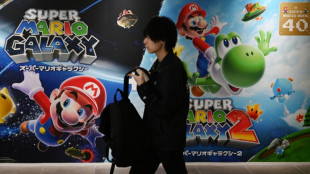
-
 Typhoon flooding kills 5, strands thousands in central Philippines
Typhoon flooding kills 5, strands thousands in central Philippines
-
Jobe Bellingham finding his feet as Dortmund head to City

-
 US civil trial to hear opening arguments on Boeing MAX crash
US civil trial to hear opening arguments on Boeing MAX crash
-
Jamie Melham on Half Yours only second woman to win Melbourne Cup
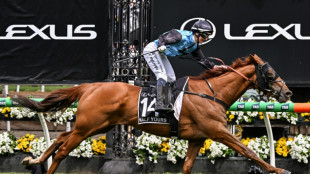
-
 Myanmar scam hub sweep triggers fraudster recruitment rush
Myanmar scam hub sweep triggers fraudster recruitment rush
-
Biggest emitter, record renewables: China's climate scorecard
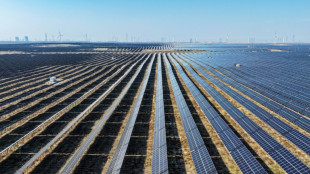
-
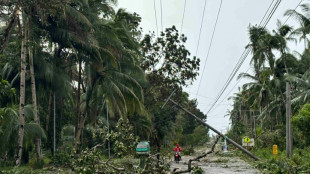 Floods strand people on roofs as typhoon pounds Philippines
Floods strand people on roofs as typhoon pounds Philippines
-
Asian markets swing as trades eye tech rally, US rate outlook
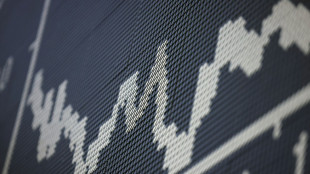
-
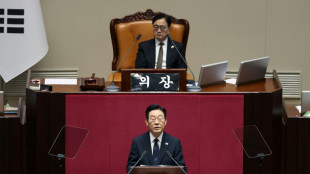 South Korea to triple AI spending, boost defence budget
South Korea to triple AI spending, boost defence budget
-
Trott to leave as Afghanistan coach after T20 World Cup
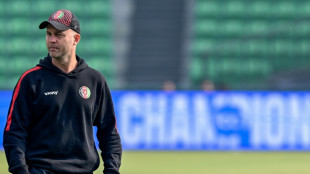
-
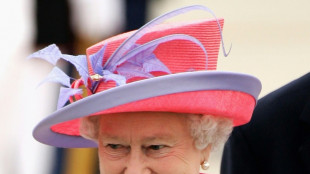 Late queen's fashion to go on show at Buckingham Palace
Late queen's fashion to go on show at Buckingham Palace
-
In Morocco, exiled Afghan women footballers find hope on the pitch

-
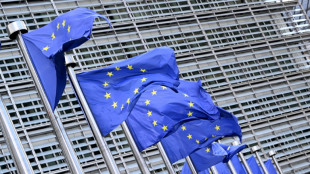 EU scrambles to seal climate deal ahead of COP30
EU scrambles to seal climate deal ahead of COP30
-
New Yorkers expected to pick leftist Mamdani in stunning election
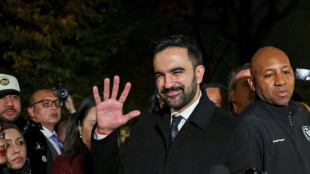
-
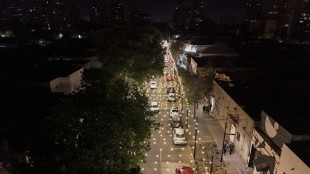 Pining for Pinochet: how crime fanned nostalgia for Chile's dictator
Pining for Pinochet: how crime fanned nostalgia for Chile's dictator
-
Why an Amazon chef said no to a vegan dinner for Prince William event
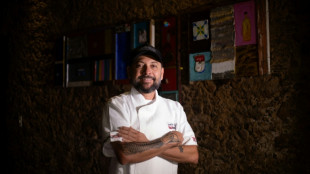
-
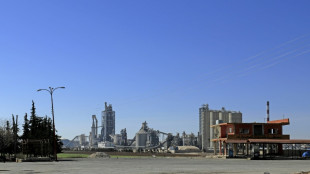 Cement maker Lafarge on trial in France on charges of funding jihadists
Cement maker Lafarge on trial in France on charges of funding jihadists
-
Worker dies after medieval tower partly collapses in Rome
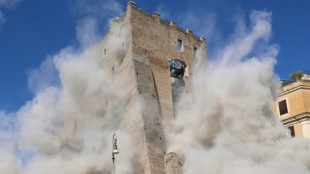
-
 Run-machine Labuschagne in form of his life ahead of Ashes
Run-machine Labuschagne in form of his life ahead of Ashes
-
Prince William plays football, volleyball in Rio on climate trip

-
 Jamaicans mobilize aid in aftermath of Melissa's wreckage
Jamaicans mobilize aid in aftermath of Melissa's wreckage
-
Starbucks cedes China control to Boyu Capital

-
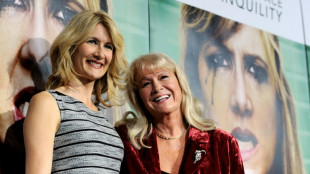 'Wild at Heart' actress Diane Ladd dies at 89
'Wild at Heart' actress Diane Ladd dies at 89
-
Xhaka lifts Sunderland into fourth after Everton draw

-
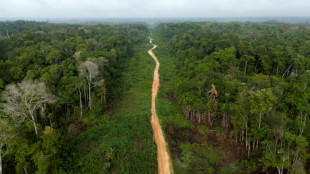 Brazil records biggest annual fall in emissions in 15 years: report
Brazil records biggest annual fall in emissions in 15 years: report
-
Victor Conte, mastermind of BALCO doping scandal, dead at 75: company
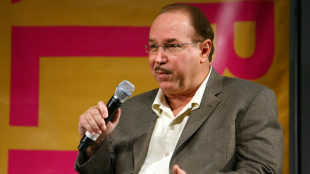
-
 Trial opens in 1st US civil case on 2019 Boeing MAX crash
Trial opens in 1st US civil case on 2019 Boeing MAX crash
-
Barrett brothers out of All Blacks' clash with Scotland

-
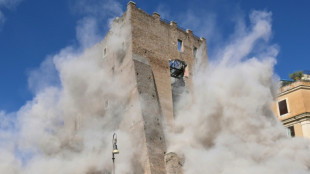 Medieval tower partially collapses in Rome, trapping worker
Medieval tower partially collapses in Rome, trapping worker
-
Arsenal's Arteta says injured Gyokeres out of Slavia Prague tie

-
 Alonso says 'quality' Wirtz helped get him Real Madrid job
Alonso says 'quality' Wirtz helped get him Real Madrid job
-
US Fed's Cook warns inflation to stay 'elevated' next year
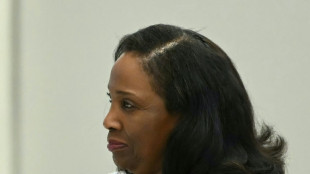
-
 Blue heaven: huge crowds salute Los Angeles Dodgers in victory parade
Blue heaven: huge crowds salute Los Angeles Dodgers in victory parade
-
Dutch centrist Jetten clinches election win: final tally
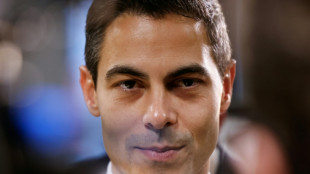
-
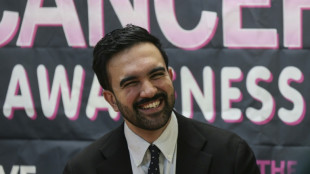 Mamdani extends olive branch to anxious NY business community
Mamdani extends olive branch to anxious NY business community
-
Sierra Leone chimpanzee sanctuary reopens after deforestation protest
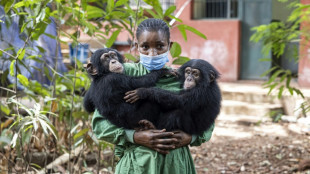
-
 Shein bans sex dolls after France outrage over 'childlike' ones
Shein bans sex dolls after France outrage over 'childlike' ones
-
England full-back Steward doubtful for Autumn rugby clash with Fiji

-
 Bayern know how to 'hurt' PSG, says Neuer
Bayern know how to 'hurt' PSG, says Neuer
-
Rybakina downs Swiatek to reach WTA Finals last four


Japan biochemist who discovered statins, Akira Endo, dies
Japanese biochemist Akira Endo, who discovered cholesterol-lowering statins, has died aged 90, his former student and colleague said on Tuesday.
Statins, which can prevent heart attacks or strokes, are among the most commonly prescribed drugs worldwide.
Keiji Hasumi, a professor who was a long-time associate of Endo, said the scientist had died on June 5.
"His work was truly great. Statins didn't exist before Endo," Hasumi told AFP. "It has the same value and impact as the discovery of penicillin."
Johns Hopkins Medicine says more than 200 million people take statins. Studies say the global market for them was worth $15 billion in 2023 and is expected to grow.
Endo experimented on thousands of microbes to reach his 1973 discovery of mevastatin -- an agent derived from penicillin that reduces so-called "bad" cholesterol in the blood.
The researcher "was a tough, strict person. He was insightful and perceptive," and "able to see the hidden essence of things", Hasumi said.
Endo was born in 1933 to a farming family in rural northern Japan.
His ambitions began early thanks to his grandfather, who was interested in medicine and became a "great home teacher", Endo said in a 2008 autobiographical essay.
As a student, Endo became interested in antibiotics like penicillin, "deeply impressed" by how many lives they had saved, his essay in the journal Nature Medicine said.
Endo carried out research in New York in the late 1960s, when coronary heart disease was the main cause of US deaths.
"I often saw ambulances coming to take elderly people who had suffered a heart attack to hospital", which "made me realise the importance of developing a cholesterol-lowering drug", he said.
Endo worked at the Tokyo University of Agriculture and Technology, which issued a statement expressing condolences over his death, and at Japanese drugmaker Sankyo, now a part of Daiichi-Sankyo.
He spent two years testing 6,000 strains of microbe in the search for a new drug that could help achieve his goal before finally finding mevastatin.
Conflicting reports on the benefits and potential harms of statins in recent years have prompted some people prescribed the drugs to stop taking them.
"Are statins safe? For most people, the answer is a resounding yes, according to a 2014 Johns Hopkins meta-analysis of 20 years worth of published research," the US university says.
Endo was a strong candidate for a Nobel Prize, but never won. In a report on his death, Japanese broadcaster NHK noted Endo had received other accolades, including being honoured as a Person of Cultural Merit by the government in 2011.
His discovery "was the result of many twists and turns", Hasumi said.
"He reached his goal by overcoming so many challenges, without which medicines cannot be created, I think I remember him saying."
A.Ruegg--VB




